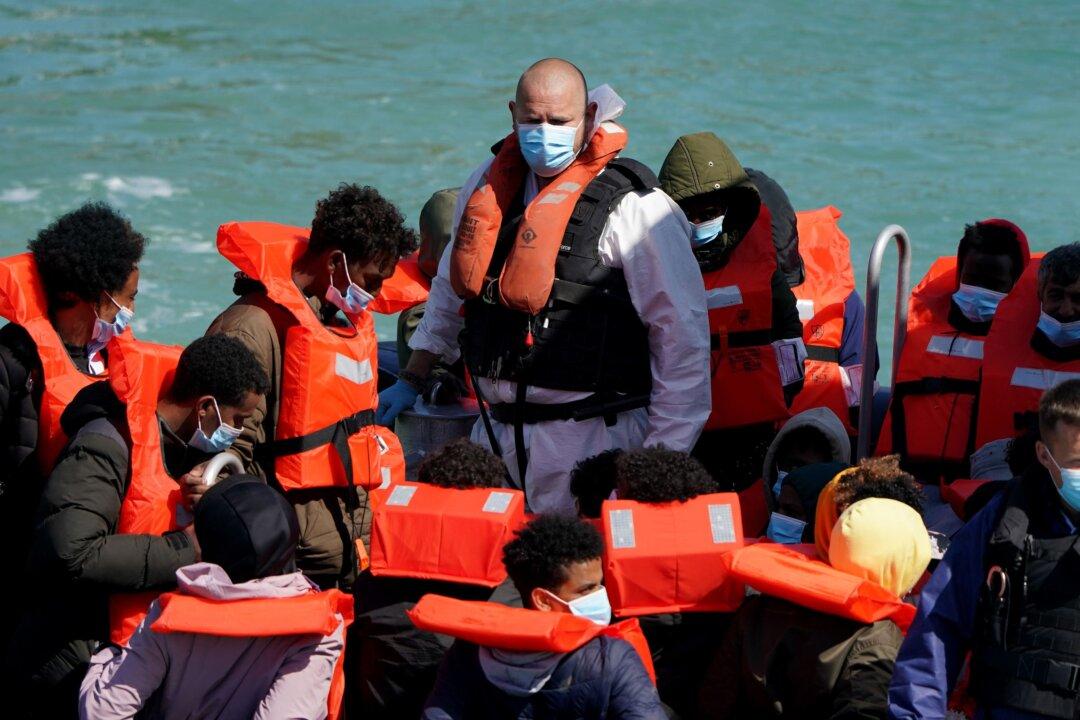Record numbers of people are running the gauntlet of the English Channel in small boats and rubber dinghies, with nearly 6,000 breaking immigration law to reach the UK in the past six months.
The uptick comes despite Home Secretary Priti Patel’s vows to make crossing what is one of the world’s busiest shipping lanes “unviable” for the smugglers and immigrants.





